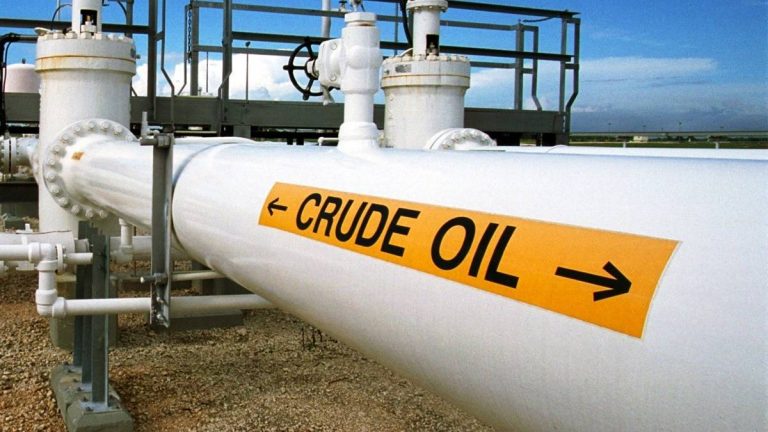By Adewale Sanyaolu
The Depot and Petroleum Marketers Association of Nigeria (DAPPMAN) has called for the discontinuation of the Naira-for-Crude policy.
Executive Secretary of DAPPMAN, Olufemi Adewole, warned that the policy presents significant risks that could affect Nigeria’s foreign exchange stability and deter Foreign Direct Investment (FDI).
On October 1, 2024, the Federal Government officially announced the commencement of crude oil sales to Dangote Refinery and other local refineries in the local currency.
Minister of Finance and Coordinating Minister of the Economy, Wale Edun, had in a statement said the sale of crude oil to the 650,000 bpd refinery was initially approved by the Federal Executive Council (FEC) in July 2024 with transactions set to begin in October.
According to industry stakeholders, the Naira-for crude policy will lead to reduced pressure on the Dollar and ensure the stability of the local currency.
However, Adewole highlighted concerns over the volatility of the Naira, emphasising that crude oil transactions are traditionally carried out in U.S. dollars due to its stability and global acceptability.
He cautioned that failure to align with this international standard could isolate Nigeria from global markets, diminishing trade opportunities and discouraging investment inflows.
“The global oil market operates in U.S. dollars due to its stability. Continuing the policy could alienate trade partners and investors who rely on the predictability of the dollar,” he warned.
The DAPPMAN boss stressed the need for policies that recognise the unique nature of the oil and gas sector to ensure sustained national competitiveness.
He noted that reactionary policies often create skewed economic benefits that primarily favor select industry players rather than the broader economy.
Citing the historical instability of the Naira due to inflationary pressures and fluctuating exchange rates, Adewole asserted that tying crude oil transactions to the Naira could exacerbate these challenges.
“The Naira has experienced significant fluctuations over the years, driven by inflation and exchange rate instability.
If crude oil transactions are linked to the Naira, these issues will only worsen, potentially triggering capital flight and causing foreign investors to seek alternative markets.
This would negatively impact Nigeria’s economic growth, the sustainability of the sector, and the efficiency of the oil and gas value chain,” he said.
He further warned that Naira-for-crude transactions could place an unsustainable burden on Nigeria’s foreign exchange reserves.
He argued that the Central Bank of Nigeria (CBN) might struggle to maintain currency stability amid insufficient dollar inflows, leading to additional economic strain.
“It is almost inevitable that implementing this policy could further deplete Nigeria’s foreign exchange reserves.
“The CBN may find it increasingly difficult to stabilise the Naira due to inadequate dollar inflows.”
He pointed out that given that oil transactions have historically been a primary source of foreign exchange, disrupting this mechanism will likely intensify economic pressures.
The DAPPMAN ES explained that while proponents of the policy argue that Naira-for-crude transactions could enhance economic sovereignty and strengthen the local currency, he emphasized that policy decisions must prioritize sustainable economic impact.
“DAPPMAN supports all efforts and policies aimed at strengthening the Naira. However, these strategies must be capable of driving major economic reforms that address the underlying causes of the Naira’s weakness.
“Nigeria must strike a balance between national interests and global market realities. Economic policies are most effective when they are not shaped by sector-specific demands but rather by long-term economic sustainability,” he said.
Adewole referenced Venezuela’s unsuccessful attempt in the early 2000s to replace the U.S. dollar with its local currency in oil transactions, which contributed to severe economic destabilization.
“Nigeria needs to tread cautiously and learn from historical precedents. Policies that disrupt established international trade norms without adequate safeguards can have unintended consequences. We must ensure that our policies are designed to maximize benefits for all Nigerians,” he said.
DAPPMAN, according to Adewole, remains committed to working with regulators and other stakeholders to promote efficiency and seamless access to “reliable, safe, and world-class solutions” in the downstream sector.
He reiterated the need for policies that align with international market realities while ensuring long-term economic stability for Nigeria.
“The future of Nigeria’s oil and gas sector depends on pragmatic policies that facilitate investment, encourage transparent competitiveness, and protect the nation’s foreign exchange reserves.
“By fostering an enabling environment for private-sector participation, Nigeria can achieve a sustainable energy landscape that benefits the economy.”
